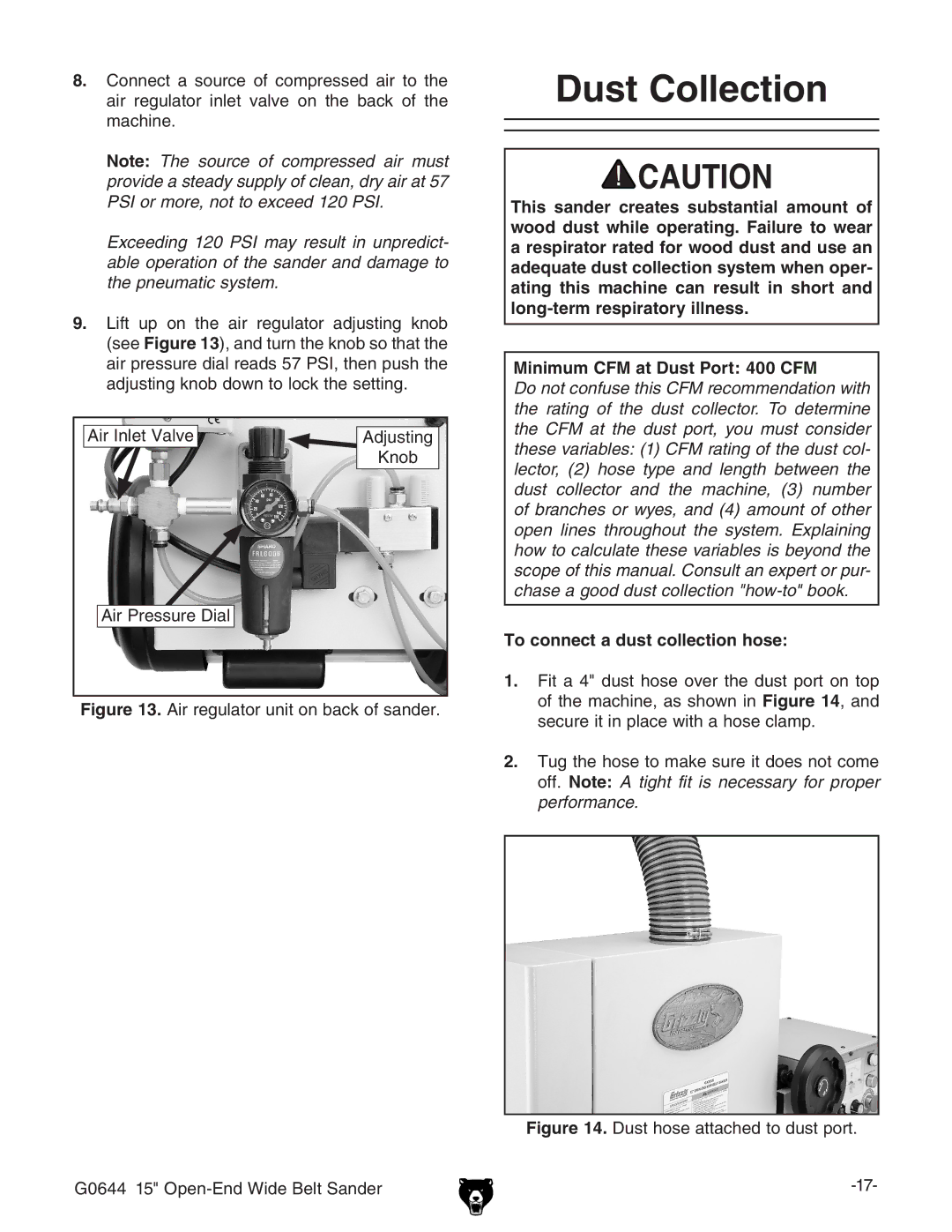
8.Connect a source of compressed air to the air regulator inlet valve on the back of the machine.
Note: The source of compressed air must provide a steady supply of clean, dry air at 57 PSI or more, not to exceed 120 PSI.
Exceeding 120 PSI may result in unpredict- able operation of the sander and damage to the pneumatic system.
9.Lift up on the air regulator adjusting knob (see Figure 13), and turn the knob so that the air pressure dial reads 57 PSI, then push the adjusting knob down to lock the setting.
Air Inlet Valve | Adjusting |
| Knob |
Air Pressure Dial |
|
Figure 13. Air regulator unit on back of sander.
Dust Collection
This sander creates substantial amount of wood dust while operating. Failure to wear a respirator rated for wood dust and use an adequate dust collection system when oper- ating this machine can result in short and
Minimum CFM at Dust Port: 400 CFM
Do not confuse this CFM recommendation with the rating of the dust collector. To determine the CFM at the dust port, you must consider these variables: (1) CFM rating of the dust col- lector, (2) hose type and length between the dust collector and the machine, (3) number of branches or wyes, and (4) amount of other open lines throughout the system. Explaining how to calculate these variables is beyond the scope of this manual. Consult an expert or pur- chase a good dust collection
To connect a dust collection hose:
1.Fit a 4" dust hose over the dust port on top of the machine, as shown in Figure 14, and secure it in place with a hose clamp.
2.Tug the hose to make sure it does not come off. Note: A tight fit is necessary for proper performance.
Figure 14. Dust hose attached to dust port.
G0644 15" |
